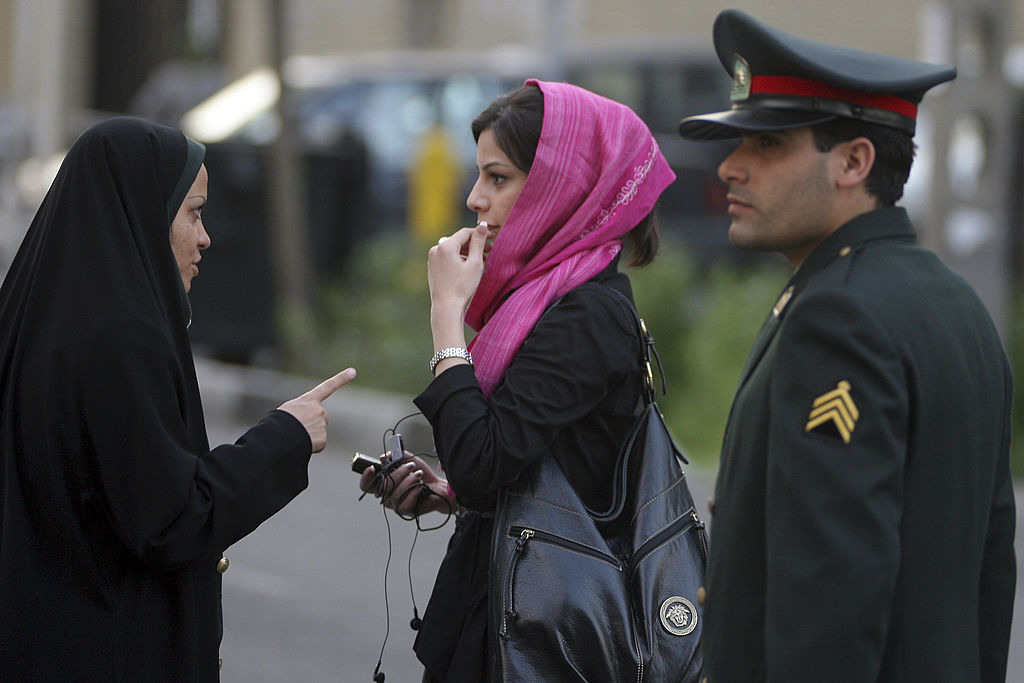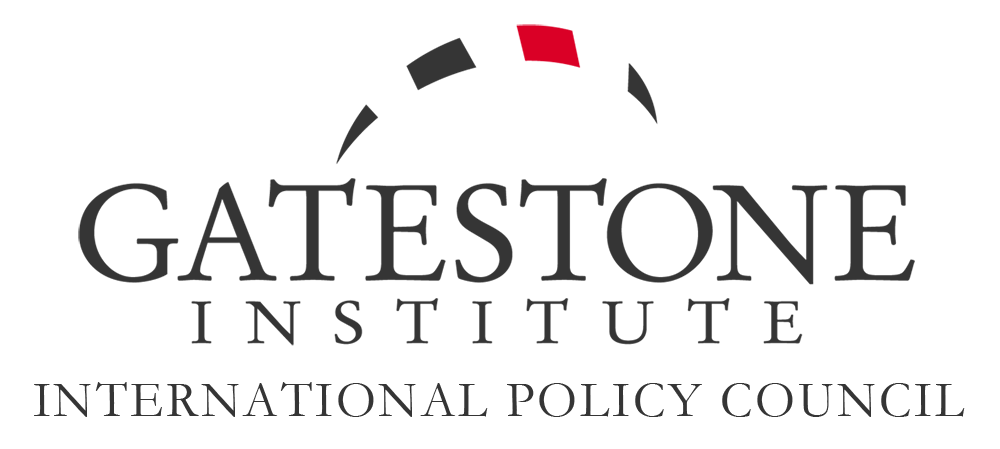In this mailing:
- Con Coughlin: Israel Faces a Serious Escalation in its Proxy War with Iran
- Uzay Bulut: Iranian Women Fight for Freedom
by Con Coughlin • August 29, 2019 at 5:00 am
The fact that Israel has found it necessary to attack targets so far from its traditional area of military operations close to its immediate borders is indicative of the alarming escalation that has taken place in recent months in the threat Iran poses to Israeli security.
Earlier this week, in Lebanon, an Israeli drone was reported to have bombed a Palestinian base that is said to be funded by Iran. Israeli warplanes were also reported to have bombed Iranian military bases on the outskirts of the Syrian capital Damascus.
The very idea of Washington sitting down with the Iranians at a time when it is continuing to threaten the security of its closest Middle Eastern ally would be unconscionable.
The reality is that there can be no meaningful dialogue between Washington and Tehran on a future deal so long as Iran remains committed to its long-standing policy of seeking the wholesale destruction of the Jewish state.

Israel was responsible for the recent attack on an Iranian military base in Iraq, which was being used to assemble medium-range missiles with the capability to hit targets in Israel. The threat was deemed so important that senior Israeli officers decided to launch a daring bombing raid that required F-35 stealth warplanes to penetrate Saudi airspace to achieve their objective. Pictured: An Israel Air Force F-35. (Image source: Israel Air Force/Wikimedia Commons)
The recent confirmation by US military officials that Israeli warplanes were responsible for the recent attack on an Iranian military base in Iraq demonstrates the alarming extent to which the so-called proxy war between Tehran and Jerusalem has escalated in recent weeks.
According to senior Israeli security sources, spoken to on an off-the-record basis, the base in the northern Iraqi province of Salaheddin was targeted because they believed it was being used to assemble Iranian-made medium-range missiles with the capability to hit targets in Israel.
The threat was deemed so important that senior Israeli officers decided to launch a daring bombing raid that required F-35 stealth warplanes to penetrate Saudi airspace to achieve their objective. It is unclear whether the Saudis, who oppose Iranian meddling in Iraq but do not have diplomatic relations with Israel, gave permission for the Israeli warplanes to enter their airspace.
by Uzay Bulut • August 29, 2019 at 4:00 am
"The Islamic Republic authorities say 'compulsory hijab' is the law and must be obeyed. However, bad laws must be challenged and changed." — Masih Alinejad, Iranian-American journalist and award-winning activist.
"The basis of this tyranny is the religious law that the government has been enforcing since the 1979 revolution. Women are second-class citizens, and essentially slaves in Iran. The international community needs to have the courage to delegitimize religious law and call it out for its tyrannical nature. Just as the free world delegitimized communism during the Cold War, it should do the same to religious law." — Nasrin Mohammadi, author of Ideas and Lashes: The Prison Diary of Akbar Mohammadi, about the torture and death in prison of her late brother; to Gatestone Institute.
"The international community should also focus on Iran, struggle to end that regime and other similar governments across the world. With Iran, it should also point out the corruption, where religion is used as an excuse to steal money and power from the people." — Nasrin Mohammadi.
"But we need support of the international community to raise this issue with Iranian authorities and take action." — Masih Alinejad.

Three Iranian women held in Tehran's notorious Qarchak prison were sentenced recently to what could amount to more than 10 years in prison. Their "crime"? Failing to wear headscarves, thereby defying the country's dress code. Pictured: An Iranian policewoman (left) warns a woman about her clothing and hair during a crackdown to enforce the regime's dress code, on April 22, 2007 in Tehran, Iran. (Photo by Majid Saeedi/Getty Images)
Three Iranian women held in Tehran's notorious Qarchak prison were sentenced recently to what could amount to more than 10 years in prison. Their "crime"? Failing to wear headscarves, thereby defying the country's Islamic dress code.
The women were apprehended after a video they posted online during International Women's Day went viral. In the clip, they are seen walking bear-headed on a Tehran metro and distributing flowers to female passengers.
"The day will come when women are not forced to struggle," one of them is heard saying, while another expresses hope that one day women in hijabs will be able to walk side-by-side with women who choose not to wear them.
The battle on behalf of a woman's right not to cover her head spurred Iranian-American journalist and award-winning activist Masih Alinejad – author, most recently, of The Wind in My Hair: My Fight for Freedom in Modern Iran -- to found a social-media movement called "My Stealthy Freedom."
|
|



No comments:
Post a Comment